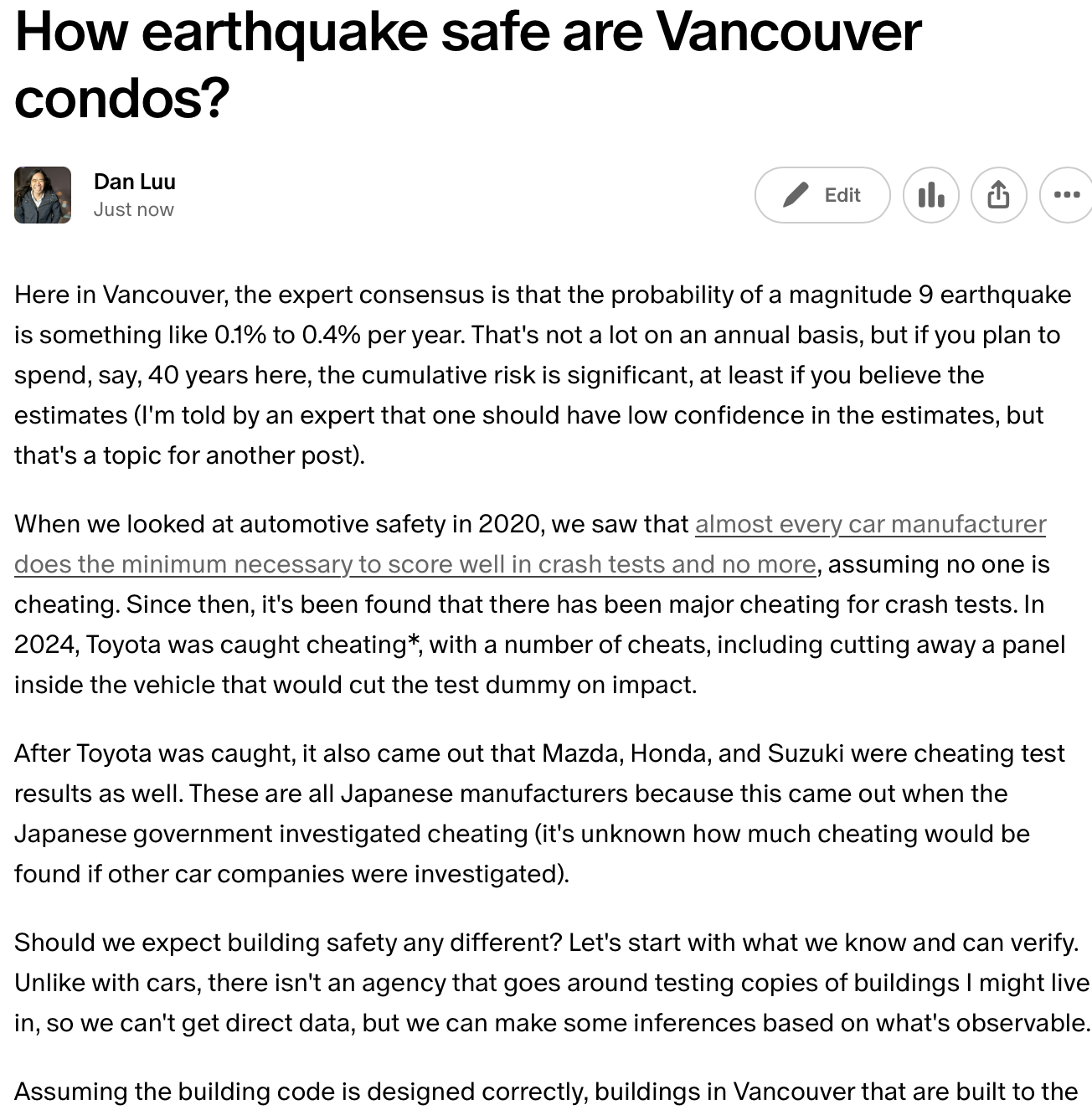How earthquake safe are Vancouver condos?
Discussion
Loading...
Discussion
@danluu welcome back man, it's been almost half a year since your last post up here
@danluu there are some great studies on building demolition where they put dummies in different places and then assess how well they did post demolition. IIRC being next to things >> under things (between beds, not under tables). The #sfba has earthquakes just enough that we do something about it. I worry about the other parts of the whole west coast, b/c the risk seems to be similar but kind of understandably it's harder to motivate people to deal with hypothetical risks. #earthquake
bonfire.cafe
A space for Bonfire maintainers and contributors to communicate
Automatic federation enabled
